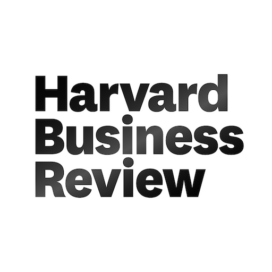How Anxiety Affects CEO Decision Making
Published: July 19, 2016 / Author: Mike Mannor, Adam Wowak, Viva Bartkus and Luis Gomez-Mejia

While top executives tend to be thought of as a confident bunch, they are no less susceptible to anxiety than the rest of us. After all, they routinely have to make important decisions, often under conditions of uncertainty, that affect countless people, organizations, and industries.
It is less clear, though, what this anxiety means for how they do their jobs. Psychology research has shown that anxiety influences decision making—for example, job anxiety can cause people to fixate on potential threats, thus missing big opportunities. This made us wonder whether boards or employees should be worried about anxiety influencing their CEO’s strategic decision making in ways that might hold back their firm.
We interviewed 84 CEOs and other top executives of major corporations to find out. They described some of the toughest decisions they had faced in their roles. Overall we collected data on 174 big decisions, such as those relating to acquisitions, major product launches, new foreign market entries, and complex corporate restructurings. We analyzed transcripts to assess whether executives’ language focused on opportunities or threats. Then we surveyed the people who knew them best – their spouses (mostly wives, but a few husbands), close friends and family, and their chief lieutenants (COOs, general counsels, etc.) – to get more information about their personal lives and how they handled tough decisions. We combined this with archival data about their businesses, competitors, and industries. Finally, we conducted a follow-up survey of employees at the lower levels of these organizations to see how their anxiety levels compared to top executives.
We found that more-anxious leaders (those that were described as experiencing job anxiety “to some extent,” “to a considerable extent,” or “to a great extent”) took fewer strategic risks than their less anxious peers in order to avoid potential losses. Job anxiety reduced the attractiveness of big strategic bets for the company, despite their potential to drive large gains.
This isn’t necessarily a bad thing, as excessive risks can lead companies into ruin (Exhibit A: the subprime mortgage crisis). But smart risks are often key to driving corporate growth, and our results suggest that anxious executives may, in their overriding desire to avoid threats, miss out on high-upside strategic opportunities and thus limit growth.
However, context matters. Researchers have shown that executives facing loss contexts (e.g., when the company has recently underperformed relative to peers) are more inclined to make big strategic bets that, if successful, can undo the loss. Conversely, executives facing gain contexts (e.g., when the company has recently performed better than its peers) eschew risky bets in favor of safer alternatives that offer more predictable, albeit lower upside, returns.
Read the entire article on the Harvard Business Review website.
Related Stories







